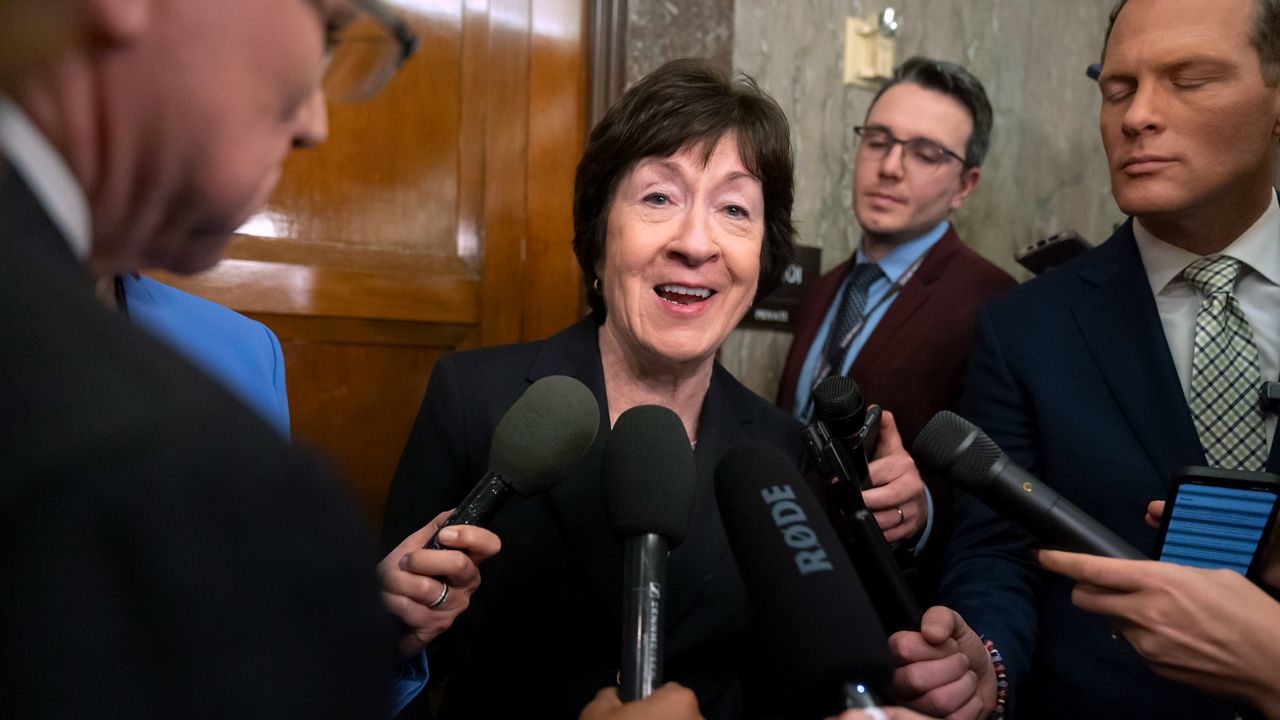Sen. Susan Collins of Maine was officially named chair on Tuesday of the powerful Senate Appropriations Committee, where she will play a key role in federal spending decisions, including so-called earmarks for projects in Maine.
Collins was expected to take over the committee after Republicans assumed control of the U.S. Senate and outgoing Senate Majority Leader Mitch McConnell decided not to bump Collins from a position she has long coveted.
Her role was made official Tuesday, when the Senate passed its organizing resolution. Collins is the first Republican woman and the first Mainer to lead the committee in 92 years, her office said.
“I am honored to be the first Maine senator in nearly a century to lead the committee, and I remain committed to working to ensure that federal spending produces real results for the American people and that our state’s needs are met,” Collins said in a written statement. “As chair of the Senate Appropriations Committee, my priorities will remain helping Maine’s communities, funding lifesaving biomedical research, investing in rural communities by supporting education, workforce, and child care programs, strengthening our national security, and improving our infrastructure.”
Collins was first elected to the Senate in 1996, has been a member of the committee since 2009, and has served on and chaired various subcommittees, including the Defense Appropriations Subcommittee.
In her new role, Collins could be tasked with enacting the legislative agenda of President-elect Donald Trump, who is set to be sworn in for a second nonconsecutive term this month, and Republicans, who control both the House and Senate. That agenda includes deportations of immigrants in the U.S. illegally and the potential elimination of federal agencies such as the Department of Education.
Trump has appointed two billionaires — Elon Musk and Vivek Ramaswamy — to spearhead efforts to reduce the size of and spending by the federal government through an advisory commission called the Department of Government Efficiency, or DOGE.
Republicans are also expected to extend tax cuts enacted under the previous Trump administration, which could increase the federal deficit or require other proposed spending cuts.
Collins, who is also viewed as a crucial vote for Trump’s controversial Cabinet nominees, will be on the ground level of those efforts, as well as negotiations on federal spending bills needed to keep the federal government open.
The Senate Appropriations Committee oversees detailed decisions on all discretionary spending — spending that isn’t explicitly mandated — by the federal government, with its chair setting the body’s agenda, heading the budgeting process and leading negotiations. Leaders of that committee are typically able to secure more earmarks for projects in their districts.
Collins, who will be the seventh-most senior member of the Senate, has secured more than $1 billion worth of earmarks for 514 projects in Maine since Congress ended a ban on earmarks in 2021, according to her office. That doesn’t include proposed earmarks, known as Congressionally Directed Spending, contained in fiscal 2025 bills.
Collins secured nearly $361 million in earmarks this year — second only to McConnell’s nearly $499 million, according to an analysis by Roll Call, which found that 15 of the top 20 earmarkers were Senate appropriations members.
To get more news and information from this partner, subscribe here.




